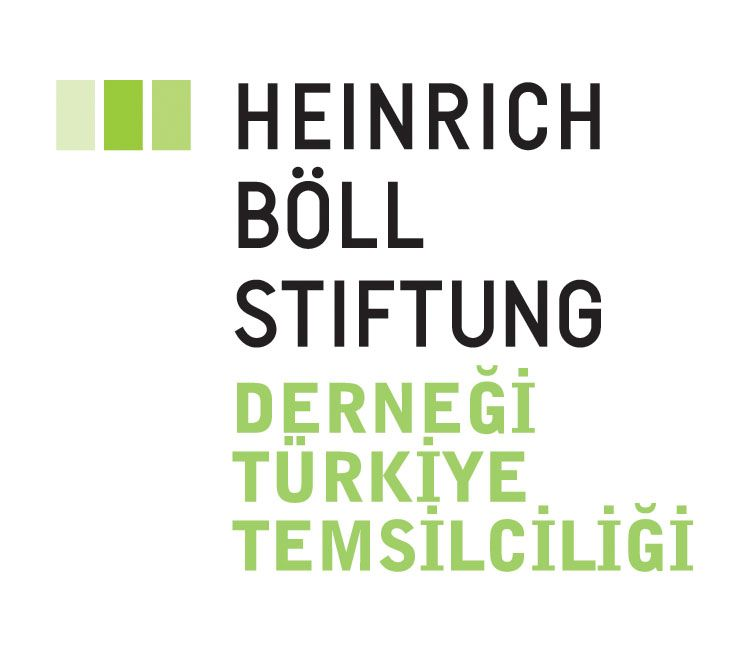How Should Türkiye Position itself in the Competition for Alternative International Systems? – Tarık Oğuzlu

Within the changing dynamics of international
politics, the question of ‘what should be the grand strategy for Turkey’ has
never been more critical. Although Turkey, as a medium-sized country, can
influence developments in its immediate region, it is directly affected by
developments on a global scale. In recent years, the new Cold War climate
brewing among the United States of America, the People’s Republic of China, and
the Russian Federation have begun to put extra challenges on many countries,
including Turkey.
The United States of America, the principal founding
and protective country of the liberal world order that developed after 1945, are
not as strong as it used to be. Non-Western actors now have a much greater say
in world governance in parallel with the increase in their power capacities. The
People’s Republic of China and the Russian Federation come first among these
actors. China began opening to the world in the late 1970s and has achieved its
current position within the system. Thus, contributing to restructuring the existing
order in line with its priorities is in China’s national interest. On the other
hand, moving to a multipolar order in which Russia is recognized as a great
power on par with other global heavyweights is Russia’s main priority. While
China has already proved its rule-making capacity within the existing order, it
is remarkable that Russia has fast turned into a global rogue state trying to
disrupt others’ geopolitical games in a zero-sum fashion.
The United States of America, feeling that the ground
beneath it is starting to shake in the face of these two countries, acts as if
it is not disturbed by the emergence of a new ideological, normative, and
geopolitical cold war among great powers. A new cold war appears to have been
seen by the American security establishment as vital to America’s ability to
maintain its dominant position in international politics. The sharp
polarization of world politics along ideological and geopolitical fault lines
and the recognition of the United States and China as the emerging leaders of
two poles in conflict with each other seem compatible with the global strategy
of the United States.
In the Cold War between 1945 and 1990, the countries
outside the two competing blocs could not effectively shape world politics
despite all their desires and efforts. However, in today’s world, many
medium-sized countries, including Turkey, as well as underdeveloped and
developing countries, are disturbed by this new cold war climate, which is
becoming increasingly destructive. In this new polarized environment, which
emerged within the framework of the separation between democracies and
autocracies, many countries are trying to stay out of the tension. Developing
pragmatic relations with as many countries as possible is the primary desire of
many countries today. It is precious for many countries to pursue a
multidimensional and multidirectional foreign policy without taking sides.
Turkey is one of them. No matter how deep-rooted historical, political,
economic, social, strategic, and institutional relations it has established
with the Western world, Turkey has been simultaneously trying to develop closer
ties with non-Western countries based on mutual benefits and pragmatic concerns.
Trying to create an Ankara-centric strategy within the
framework of the concept of strategic autonomy, Turkey is faced with severe
challenges from both Western and non-Western actors. What Turkey expects from
its Western allies and partners is the acceptance of its strategic
autonomy-oriented foreign policy. On the other hand, it is uncomfortable with its
strategic intentions being continuously questioned by its Western partners as it
tries to distribute its eggs in different baskets and does not want to play the
traditional role that its Western partners expect it to do in the emerging new
world order. The perception that strategic decisions are taken in Western
capitals such as Washington and Brussels without Ankara’s input, but it is nevertheless
expected to fulfill them in its neighborhood as the local representative of the
Western world disturbs Turkish elites.
In addition to this established perception about the
Western world, the idea that Western countries do not take Turkey’s
geopolitical and security interests into account sufficiently and that they put
Turkey’s territorial integrity and economic prosperity at risk with the
policies they follow resonates with Ankara. The perception that its struggle
against all forms of terrorism is not sufficiently accepted in the Western
world and that the policies of Western countries in the Aegean, Eastern
Mediterranean, North Africa, Caucasus, and Middle East regions harm its
national interests seriously affect Turkey’s view of the West.
On the other hand, the growing salience of illiberal
dynamics in its domestic politics strengthens the perception that Turkey is
rapidly moving away from the norms and values of the West. Turkey, which does
not feel pressured about democratization, human rights, and similar issues in
its relations with Eastern actors, does not have this comfort in its relations
with Western countries.
From this background, three fundamental facts are essential
in determining the grand strategy that Turkey should follow in the coming
years. First, its neighborhood’s geopolitical developments continue to affect
Turkey’s territorial integrity and economic prosperity negatively. Secondly,
Turkey is a trading state and derives half of its national wealth from
international trade. Finally, Turkey is a medium-sized power with a national
income of fewer than one trillion dollars. On the one hand, this situation determines
the limits of what Turkey can do in the international arena. On the other hand,
it requires it to keep itself away from the polarizations that have begun to
emerge on a global scale.
Thus, Turkey’s grand strategy must contain realistic
and liberal tendencies and assumptions. Turkey needs to have a strong army that
extensively relies on its national defense industry and has the capacity and
ability to conduct military operations outside its borders. It is vital to
defend itself against fait accompli by its regional rivals and, if
possible, establish its homeland defense in the future. In addition,
prioritizing diplomatic and economic instruments in relations with its
neighbors will facilitate Turkey’s achievement of its interests. The
multilateral cooperation that Turkey develops with the surrounding countries
based on the logic of regionalism will also effectively eliminate the negative
consequences of the policies pursued by non-regional global actors. Turkey’s
luck is that most of the countries in its region are uncomfortable with the
emerging conflict among great powers and do not want to have to take sides.
Being a trading state and importing the economic
resources and technological capacity it needs to complete its development
requires Turkey to support liberal and Kantian dynamics in international politics.
A world where unpredictable, hard power struggles are experienced,
protectionist economic policies are implemented, serious problems are encountered
in global supply chains, energy inputs increase, and divergences between global
actors in the technology and economy are strengthened and incompatible with
Turkey’s national interests. Unless global powers, which differ from all other
actors in terms of their material power capacities, are limited by international
law and international organizations, world politics will evolve around the idea
that the strong can do what they want, and the weak are doomed to their fate.
Therefore, Turkey should contribute to making international politics rules-based
and predictable.
Although it is understandable to some extent that it
pursues a policy of balance among great powers, Turkey should be more distant
from global actors who try to endanger the liberal world order and the rules-based
international relations structure. It should also be noted that nearly half of
Turkey’s foreign trade and seventy percent of foreign direct investment
entering the country originate from the West. Despite all the difficulties
experienced in the European Union membership process, the contribution of the
standards developed within the European Union to the welfare of Europe is still
apparent. It would be suitable for Turkey to materialize its national
development within the framework of similar standards.
Similarly, NATO membership offers Turkey immense opportunities
in international politics. Instead of developing bilateral relations with each
NATO member country, especially the United States, being in continuous
relations with these countries within NATO’s multilateral institutional
mechanisms provides opportunities for Turkey to articulate its security
priorities successfully. Being under NATO’s nuclear security umbrella is also essential
for Turkey’s national security. NATO membership is a vital power multiplier in
Turkey’s relations with both NATO members, such as Greece, and non-Western
global actors, such as China and Russia.
In the international political and economic arena, the
Western bloc is still dominant against other alternative power blocs. Developed
institutional relations with Western actors are decisive for Turkey regarding
economic welfare and national security interests. In the context of the
changing global balance of power, it is normal and understandable that Turkey
desires to take part in non-Western institutional platforms such as the
Shanghai Cooperation Organization, BRICS, and the Eurasian Economic Community
and to develop close relations with the critical power centers of the
non-Western world, especially China. Yet, it’s equally essential that Turkey
pays ultimate care to preserve the gains it has achieved within NATO as well as
alongside the EU membership process.

Prof. Dr. Tarik Oğuzlu, Istanbul Aydın University
Prof. Dr. Tarık Oğuzlu is a faculty member at Istanbul Aydın University. Oğuzlu, who received his doctorate from Bilkent University in 2003, works on Turkish foreign policy, transatlantic relations, security and world order.
To cite this work: Tarik Oğuzlu, “How Should Türkiye Position itself in the Competition for Alternative International Systems?”, Panorama, Online, 27 April 2023, https://www.uikpanorama.com/blog/2023/04/27/to/

This article has been prepared with the support provided to the International Relations Council and the Global Academy by the Heinrich Böll Stiftung Association Turkey Representative within the scope of the project titled ‘Foreign Policy for the 21st Century; Peaceful, Equitable, and Dynamic Turkey’.
Copyright@UIKPanorama. All on-line and print rights reserved. Opinions expressed in works published by the Panorama belongs to the authors alone unless otherwise stated, and do not imply endorsement by the IRCT, Global Academy, or the Editors/Editorial Board of Panorama.